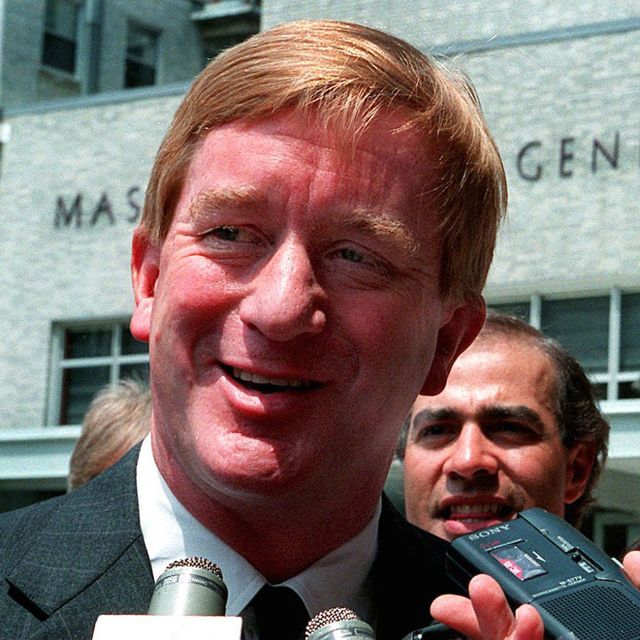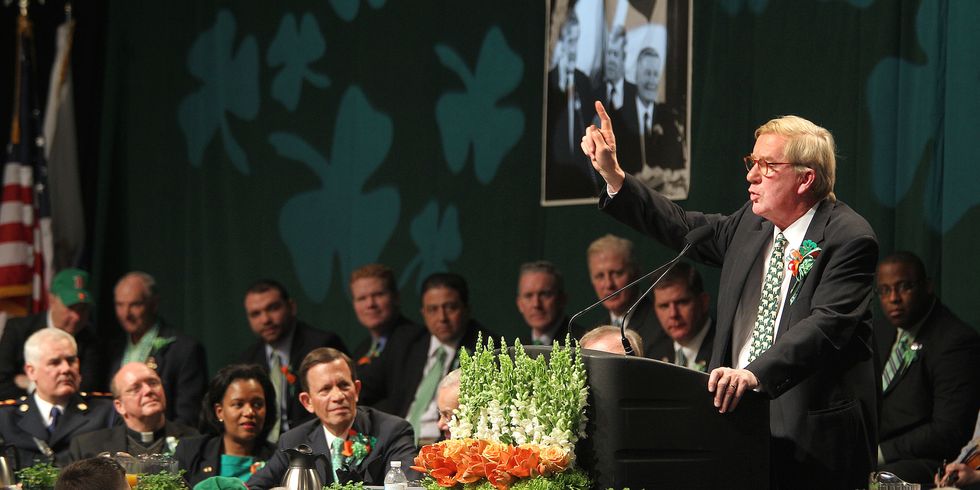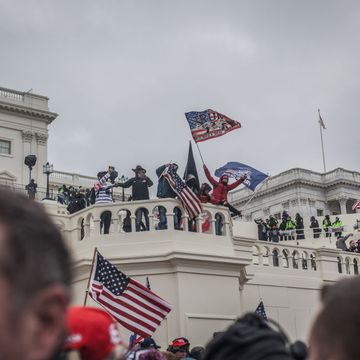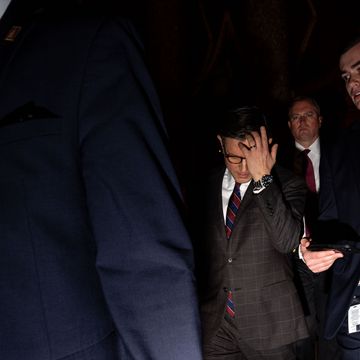Back when I was just starting out at The Boston Phoenix, William Weld was the United States Attorney in Boston. He was tasked with cleaning out the traditional rat's nest of corruption in city and state government, and he was very enthusiastic about his job. He was just the strangest combination of joviality and implacability that I ever encountered.
Once, in 1981, his office brought an extortion case against the president of the Massachusetts Senate, whom Weld charged with shaking down a contractor who'd been consensually paying off the senator for over a decade. (The government's case depended on some arcane point of the extortion statute that I still don't understand.) I sat through the entire trial; I was in the courtroom the day that Ronald Reagan was shot. The judge on the case was as hostile to the government's case as it was possible to be. He did everything but throw rocks from the bench at the prosecutor's table. The jury, which was as baffled as the rest of us were, couldn't come to a verdict. I spoke to Weld in the aftermath and we had a good laugh at the antics of the judge and of some of the witnesses.
Then he tried the guy again and convicted him.
I headed into fulltime sportswriting just as his political star was rising nationally and, when he ran for governor, I voted for him. Twice. I believe he may be the last Republican for whom I ever voted. He was the last of the WASP scions—the descendants of those grim-faced gombeens who scratched a society out of some of the most unforgiving terrain on the continent, the ones who gave up the power in Boston only grudgingly to the immigrant populations that came flooding in during the 19th century, in part because, sooner or later, Trey Eliot Cabot IV fell in love with Maureen, the downstairs maid.
An uneasy peace was struck that mellowed over the years into a culture of friendly insult. Once, at an annual St. Patrick's Day breakfast, the local Hibernian wiseguys jibed at Weld about his family's having come over on the Mayflower. No, Weld told them, his family hadn't made the trip, but they had sent the servants over to make sure the summer cottage was ready.
The last time we ran into each other was at the 2012 Republican convention in Tampa. He reached out and grabbed my arm and we spoke for quite some time. He had long ago fallen out of favor with what the Republican Party had become, and it had fallen out of favor with him. (The last straw was when Jesse Helms, that nasty old bigot, blocked Weld's appointment to be ambassador to Mexico.)
Now, though, he's back, improbably, as Gary Johnson's running mate on the Libertarian ticket. They were on with Lawrence O'Donnell on Tuesday night, and O'Donnell and Weld fell into that old-school Irish-WASP pol-patter in which anyone who's been around Massachusetts politics is fluent.
There always has been a temptation not to take Weld too seriously, because he doesn't take himself too seriously. This is a capital mistake, as is made clear by a little-remembered episode in Weld's career.
In 1988, as Ronald Reagan's term of office was winding down, Attorney General Edwin Meese, a career authoritarian and Reagan's bulldog dating back to their days in California, was caught in a corruption scandal involving his investment adviser and one of his closest friends. (One of the allegations involved the construction of an oil pipeline in Iraq. Plus ca change and all that.) This was one of the last scandals of the Reagan Administration, which had a record of corruption unmatched since the sudden death of Warren Harding.
On March 29, 1988, Weld, who then headed up the DOJ's criminal division, and Deputy Attorney General Arnold Burns marched themselves to the White House and handed their resignations to Howard Baker, then Reagan's chief of staff. No muss. No fuss. Gone.
As The Los Angeles Times wrote at the time:
Burns, who built a thriving New York law practice and joined the department only 18 months ago, first began discussing the possibility of resigning in January, according to department officials. He was said to have become increasingly fearful that he would be tarnished by criticism of Meese's conduct. "He came here with a reputation, and he wants to leave with it intact," one official said of Burns, who has no immediate job plans. As for Weld, he was convinced that "the top guy had to go, and when the top guy didn't, he did," one source said.
Beneath the lopsided grins and the self-deprecation and the occasional glass of what he always called "the amber-colored liquids," Bill Weld is a man of considerable conscience and considerable substance. But he does not brag about any of that because, my dear young man, it simply is…not…done. Both qualities are more than welcome in this particular election year and, if this is really Bill Weld's last hurrah—a reference, I suspect, that would delight him—then I hope he makes the most of it. It's good to have him back.
Click here to respond to this post on the official Esquire Politics Facebook page.

Charles P Pierce is the author of four books, most recently Idiot America, and has been a working journalist since 1976. He lives near Boston and has three children.














